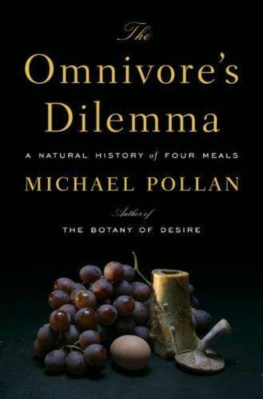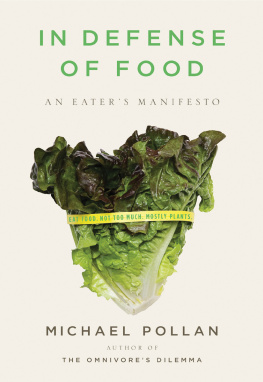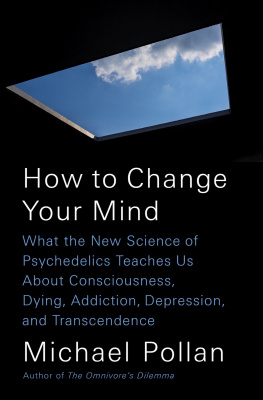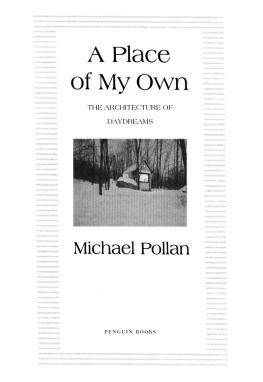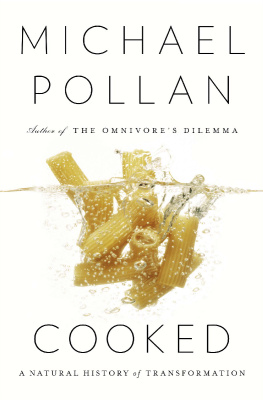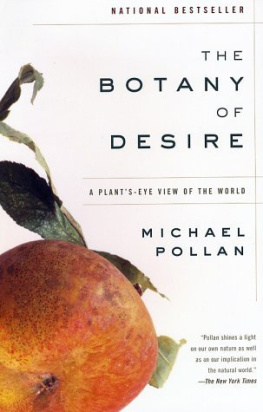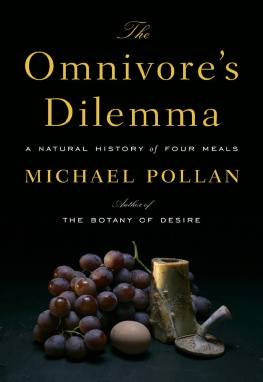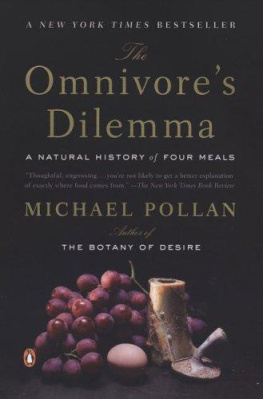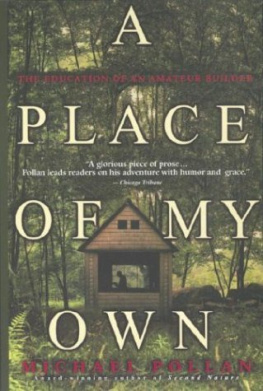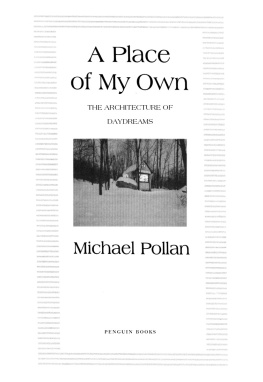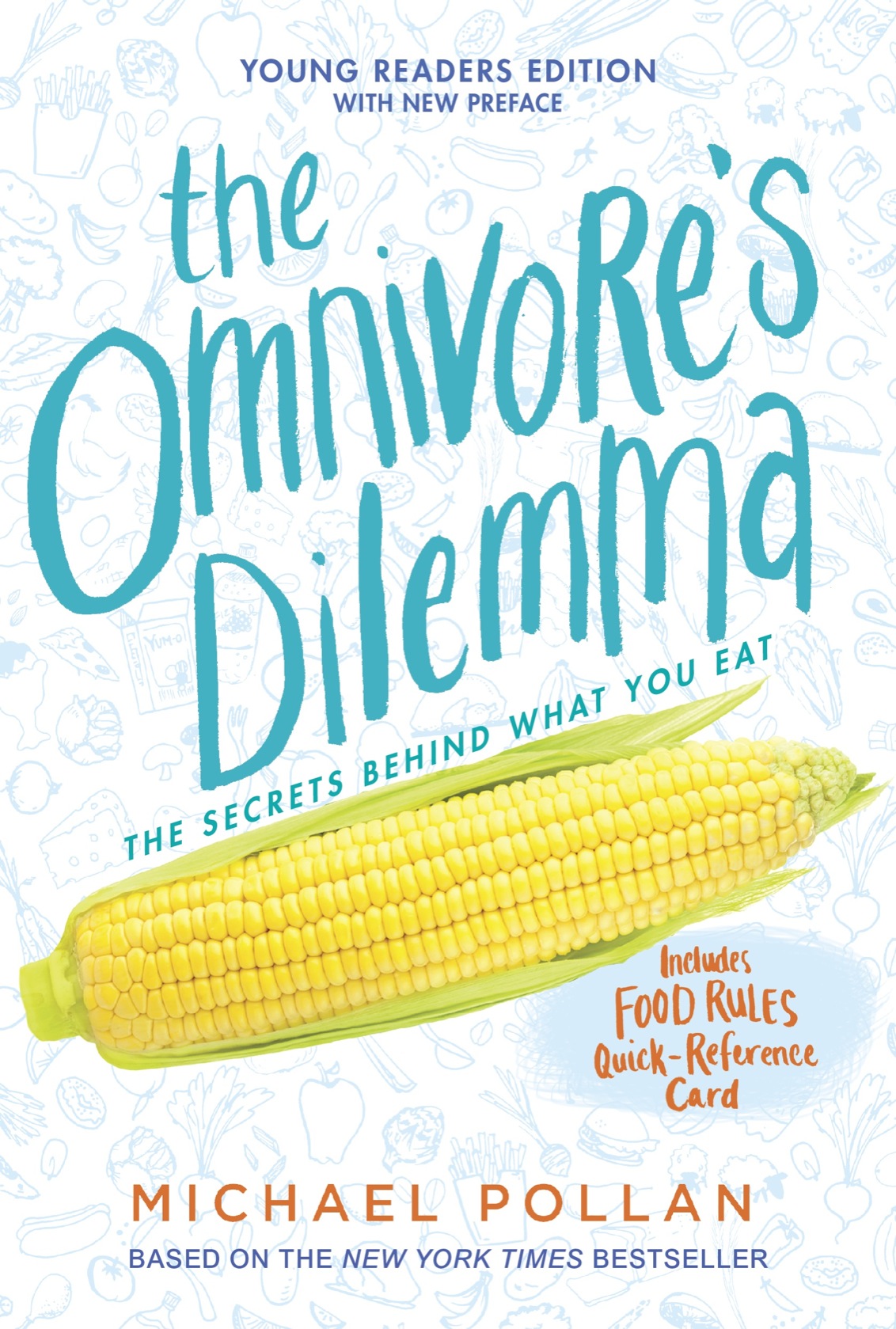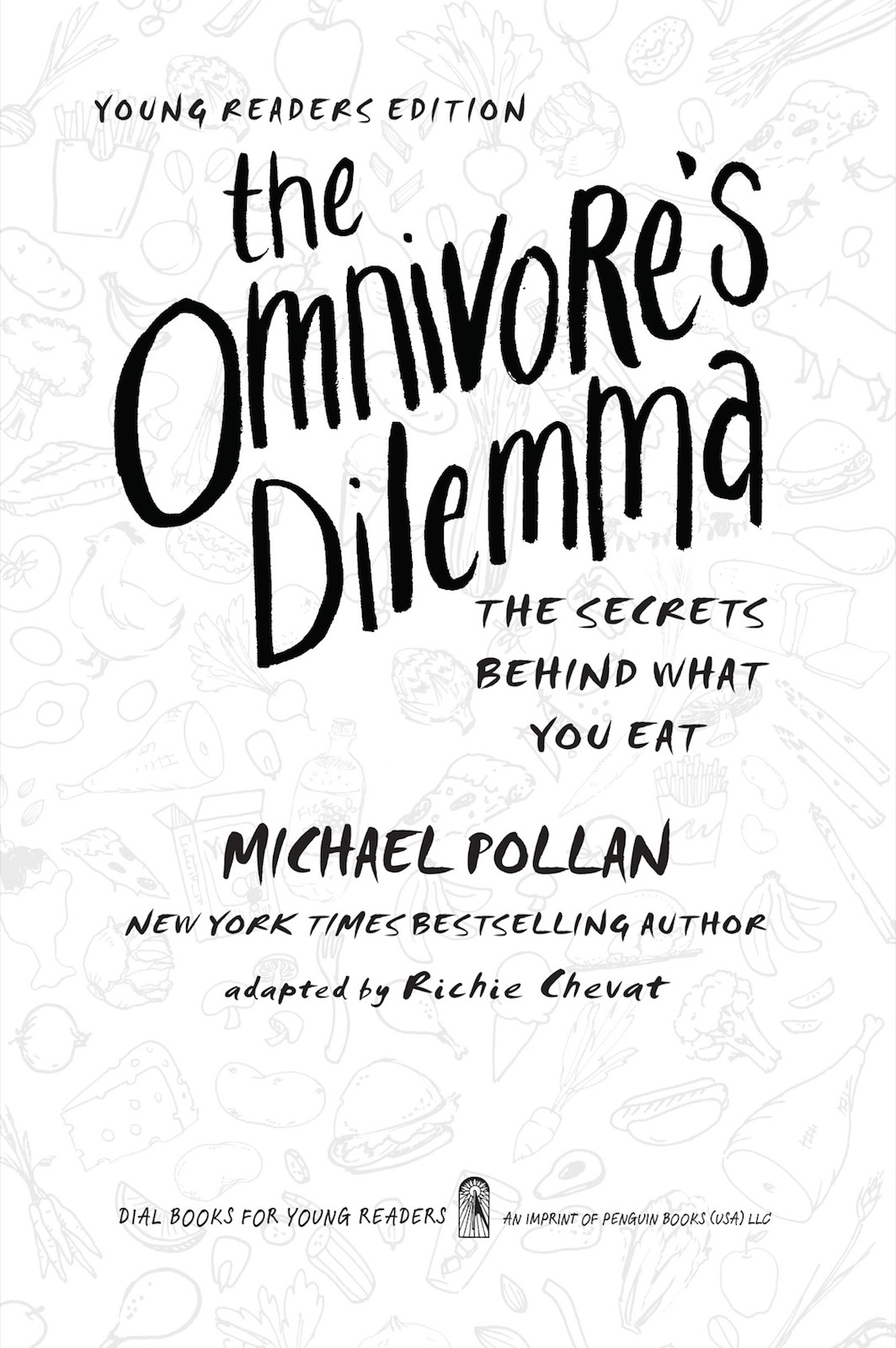PREFACE
This book just might change your life.
I know: That sounds a little over-the-top, doesnt it? I would never make such a bold claim except that, in the years since The Omnivores Dilemma was first published in 2006, thousands of readers have told me exactly thatsometimes in letters and emails, other times in person (including complete strangers on the street): Your book changed my life. Im always surprised to hear it, because that certainly wasnt my goal when I sat down to write the book, and changing peoples lives sounds like a big responsibility. So I usually gulp and then say something like, In a good way, I hope.
But Im always curious to find out what they mean, so I often ask them to tell me exactly how theyve changed since reading the book. The answers are very different, often surprising, and usually extremely gratifying.
Some people tell me that they lost weight after reading the book, and then they pull out snapshots of their larger former selves. Apparently what they learned in the book about how fast food is made convinced them to stop eating it, and the pounds began to fall off. (Even though this is definitely not a diet book.) Other people tell me that they read The Omnivores Dilemma and decided to change their career (!) and become a farmer. (Big gulp.) Hows it working out for you? I ask, a little nervously, since farming is a tough way to making a living. They usually tell me that the work is incredibly hard but also incredibly satisfying, and that they wouldnt dream of doing anything else with their lives. (Phew.)
Many people tell me that the book changed the way they think about eatingand that now they spend a lot more time deciding what to put in their mouths. The book has made them aware of how their food choices affect the environment, or animals, or their own health, and they want to start voting with their forks (an idea Ill explain later). For young people, that can mean encouraging their parents to shop differentlyto buy organic or local food, for example. Parents are used to their kids making all sorts of demands about foodusually for the latest sugary cereal or energy drink, and so theyre pleasantly surprised when their kids start asking for organic vegetables or for eggs from small farms where the chickens live outdoors and eat a natural diet.
Then there are the vegetarians and the meat eaters, whose reactions to the book could not be more different. Ive heard from lots of readers who say that, after reading about the way animals are treated in factory farms, they felt they could no longer eat meat and decided to become vegetarians. (Even though the book is not an argument against eating meat.) So I figured that one of the impacts of the book was to inspire vegetarianismuntil I began hearing from some vegetarians, whose reactions really surprised me.
Heres a typical letter from a vegetarian high-schooler: I havent eaten a bite of meat since I was six. But after reading your book Ive decided to start eating meat again. I never knew there were farms, like Polyface in Virginia, where the animals are treated so well and get to lead such happy lives. I want to support those kinds of farms, so now I eat that kind of humanely raised meat when I can. Instead of calling myself a vegetarian, now I call myself a conscious carnivore.
The fact that carnivores and vegetarians responded in two totally different ways to the same information tells me that the book is doing its job. That job is simply to get us to think about something that hardly ever crosses our minds: where our food comes from and how it gets to us. So I really like the idea that two people could read the same book and come to such radically different conclusions. I didnt write The Omnivores Dilemma to convince you to eat one kind of food or another. My aim was to give you the information you need to make good choices. Whats a good choice? Thats simple: Its one that allows you to be true to your valuesto what you most care about.
The fact is, our food choices are some of the most important choices we get to make in life. The way we eat has a bigger effect on our health and the health of the planet than any other activity. Four of the top ten diseases that kill Americans are the result of a bad diet. What you put on your plate changes nature more than anything else you do. If that sounds over-the-top, think about it: Farming has changed the landscape more than any other human activity. Agriculture has also determined which species of animals are thriving (cows, chickens, and pigsthe ones we eat) and which are in trouble (wolves and the other predators that want to eat the ones we want to eat). And though youre probably well aware of how the fossil fuel your family uses to heat your home or power your car contributes to climate change, did you know that the farming and food industry produces even more greenhouse gases than all forms of transportation put together? Thats what I mean when I say that the way you eat affects the world more than anything else you do.
This might sound like a big responsibility, and it isbut its also a great opportunity, especially for people your age. Why? Because although you wont be able to vote in elections until youre eighteen, you can vote with your fork nowby choosing to eat foods that reflect your values, and to avoid ones that dont. Best of all, you can vote this way not just once, but three times a day.
Does this sort of voting make a difference? Without a doubt. Consider the changes weve seen in just the last few years. When The Omnivores Dilemma was published in 2006, there were four thousand farmers markets in America; now there are more than eight thousand. In 2006, organic food was a fifteen-billion-dollar industry; now its a thirty-five- billion-dollar industry. The market for sustainably raised meat, milk, and eggs has exploded in the last decade. A new generation of young people are starting small sustainable farms. (One of the most popular internships for college students today is working on an organic farm.) Since Michelle Obama planted an organic vegetable garden on the grounds of the White House, the number of Americans growing vegetables at home has soared, to about 35 percent of all families. And a whole range of food and farming issues that have never been on the publics radar are now being debated across the country and in Washington, D.C.
One of the most exciting developments weve seen in the last decade or so is the rise of a food movement in Americaa movement to change the way we produce and consume food, so that farmers, food workers, animals, the land, and the environment are all treated with greater respect. Theres a lot we can all do to push the food system in this direction, but it begins with informing yourself about whats at stake, and then votingwith your fork now, and then in a few years with your ballotfor the kind of world youd like to live in. This book is an invitation to think about both the problems of how we produce food today and some of the inspiring solutions people are coming up with to build a better food system for everyone and everything it touches. Welcome to the conversation.
Michael Pollan, 2015
SOURCES
Listed below, by chapter, are the main works referred to in the text, as well as others that supplied me with facts or influenced my thinking. Web site URLs are current as of March 2009. All cited articles by me are available at www.michaelpollan.com.


